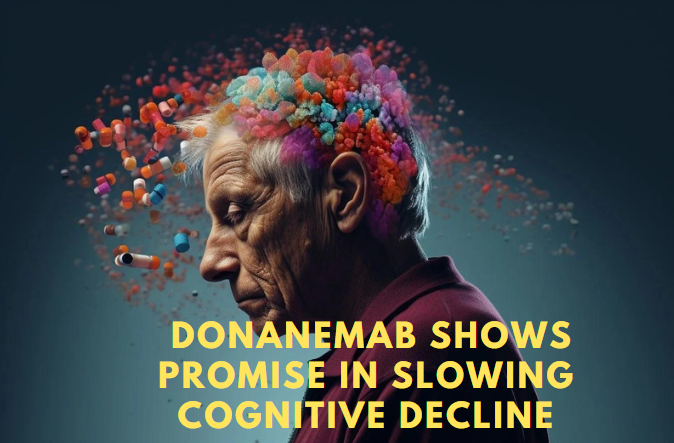The quest for effective treatments against Alzheimer's disease has been a long and challenging journey for medical researchers. Despite numerous attempts and significant investments, finding drugs that can halt or reverse cognitive decline in patients with early Alzheimer's has remained elusive. However, a recent breakthrough has brought new hope to the field. This drug has been found to effectively check cognitive decline in individuals with early-stage Alzheimer's. Developed by Eli Lilly, Donanemab has shown remarkable potential in slowing down cognitive impairment, raising the spirits of neurologists and patients alike.
The Frustration of Alzheimer's Research
Alzheimer's disease is a progressive and devastating neurological disorder that affects millions of people worldwide. It is the leading cause of dementia, gradually robbing individuals of their cognitive abilities, memory, and independence. Over the years, pharmaceutical companies and researchers have invested considerable resources and time in developing drugs to combat this formidable ailment. Unfortunately, despite numerous clinical trials and extensive research, these efforts have largely resulted in disappointment.
In the past, trial after trial for Alzheimer's medications has failed to demonstrate significant efficacy in halting or reversing the disease's progression. Many drugs have shown promise in the early stages, only to fail in later phases of testing. This repeated pattern of failure has been a major source of frustration and dismay for neurologists, patients, and their families.
The Hopeful Discovery of Donanemab
Amid these setbacks, a glimmer of hope emerged when the pharmaceutical giant Eli Lilly unveiled its investigational drug, Donanemab. The drug underwent rigorous testing in a phase III clinical trial, and the results have been nothing short of remarkable.
The Phase III Trial Results
The trial results revealed that Donanemab effectively slowed cognitive decline by an impressive 35% when compared to a placebo group. While Donanemab does not claim to stop or reverse Alzheimer's disease, its ability to significantly slow cognitive decline is a noteworthy achievement. The drug's efficacy in preserving cognitive function and potentially delaying the onset of severe symptoms has generated considerable excitement in the medical community.
The Promise of Dual Success
What makes the discovery of Donanemab even more promising is that it marks the second drug within a year to show potential in checking cognitive decline in early Alzheimer's patients. The previous drug, which was also a breakthrough, renewed hope for the possibility of effective treatments against the disease.
The combination of two drugs demonstrating promise in a relatively short period is a positive indication of the ongoing advancements in Alzheimer's research. While both drugs do not cure Alzheimer's, they offer crucial steps forward in managing and mitigating the devastating effects of this debilitating condition.
The recent discovery of Donanemab's efficacy in slowing cognitive decline in early Alzheimer's patients has reinvigorated the field of Alzheimer's research. While the drug does not provide a cure, its ability to significantly preserve cognitive function is a beacon of hope for patients and their families who face the challenges of this progressive disease.
The findings not only represent a major breakthrough for Eli Lilly but also for the scientific community as a whole, proving that perseverance and dedication in the face of repeated failures can yield promising results. The success of Donanemab, coupled with the recent drugs, underscores the importance of continued investment and exploration in Alzheimer's research.
As we move forward, it is essential to remain cautiously optimistic and continue exploring new avenues in the search for effective treatments for Alzheimer's disease. The road ahead may still be long, but the recent achievements serve as a powerful reminder that each step towards progress brings us closer to a future where Alzheimer's disease may be better managed, improving the lives of millions around the world.

 The findings not only represent a major breakthrough for Eli Lilly but also for the scientific community as a whole, proving that perseverance and dedication in the face of repeated failures can yield promising results.
The findings not only represent a major breakthrough for Eli Lilly but also for the scientific community as a whole, proving that perseverance and dedication in the face of repeated failures can yield promising results.










.jpeg)




.jpeg)

.jpg)













